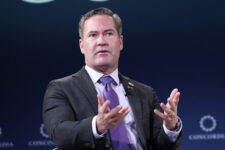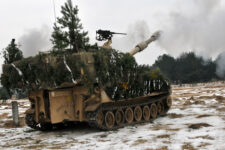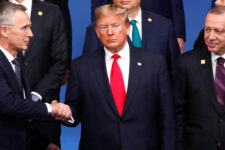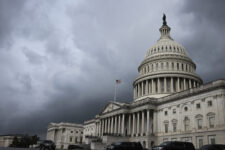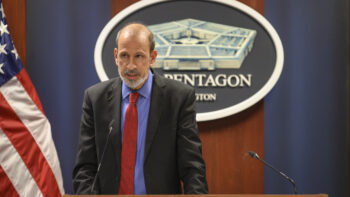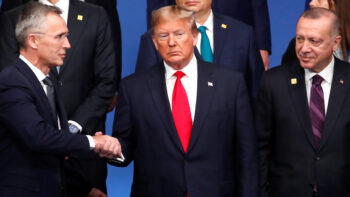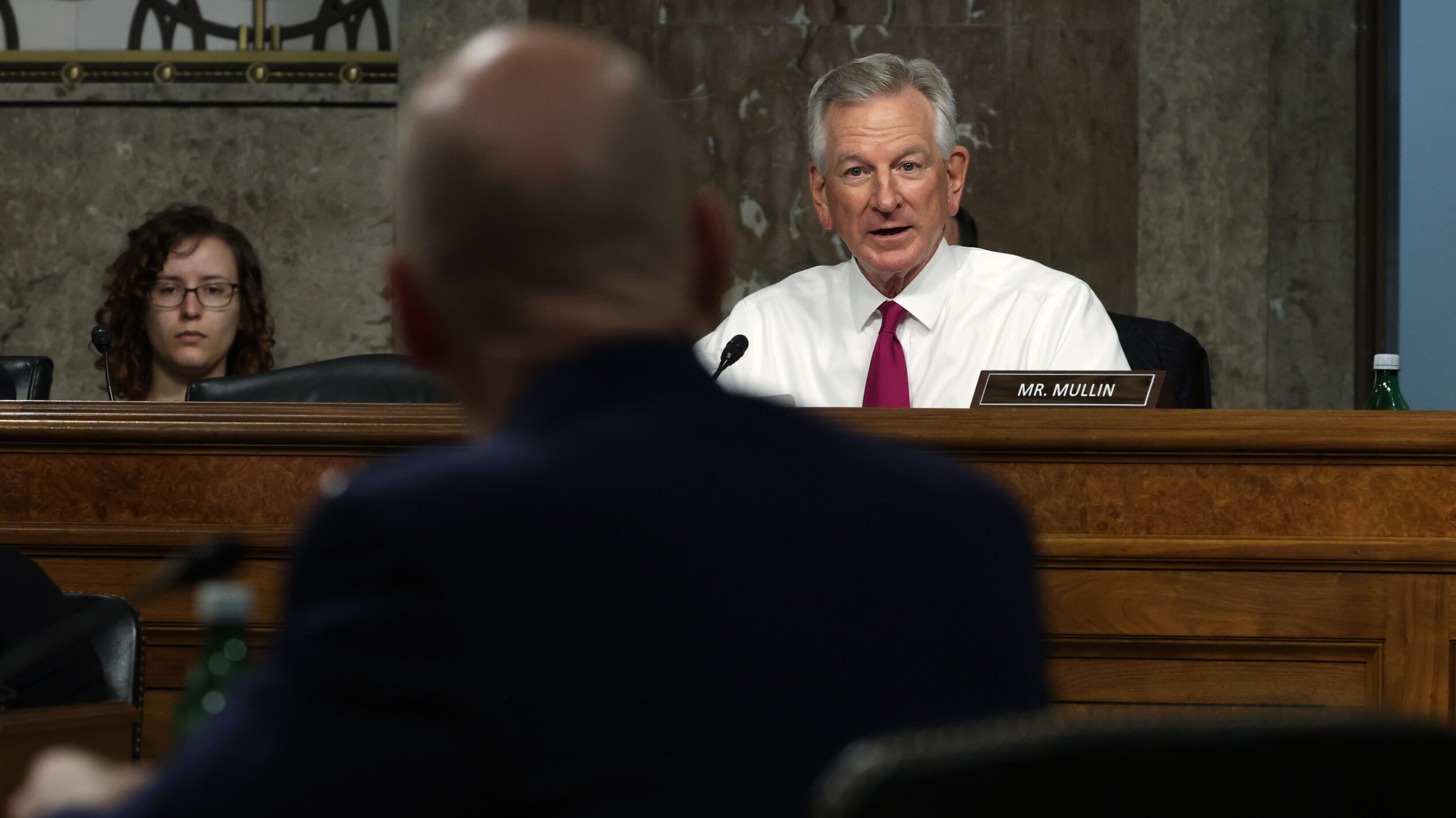
Sen. Tommy Tuberville (R-AL) speaks during a hearing to examine the nomination of USAF General David Allvin for reappointment to the grade of general and to be Chief of Staff of the Air Force on September 12, 2023 at Dirksen Senate Office Building on Capitol Hill in Washington, DC. (Photo by Alex Wong/Getty Images)
WASHINGTON — After a months-long staredown with the Pentagon, today Sen. Tommy Tuberville said he was dropping his hold on a vast majority of military nominations — with the exception of about a dozen key, high-level positions.
“I’m releasing everybody. I still got a hold on, I think, 11 four-star generals. Everybody else is completely released from me.” Tuberville said, according to NBC News. “But other than that, it’s over.”
The Alabama Republican had been effectively holding up nomination hearings for nearly 400 military officers in a dispute with the Pentagon over its abortion policy. Individual nominees could still pass through the Senate — like the new chairman of the Joint Chiefs — but Tuberville kept other officers from being approved in large groups as has traditionally been done.
The hold drew sharp rebuke from Democrats, some of his own Republican colleagues, and an increasingly vocal host of senior military leaders.
RELATED: Chinese ‘popping’ corks: Service officials warn Tuberville hold emboldening adversaries
During his confirmation hearing to become the chairman of the Joint Chiefs of Staff, Air Force Gen. CQ Brown told lawmakers the hold was going to force the military to “lose talent.” This summer Gen. Eric Smith, who was eventually confirmed the lead the Marine Corps, explained how the hold was causing a “pretty significant” “ripple effect” down through the ranks. Politico reported that in September, Defense Secretary Lloyd Austin personally confronted Tuberville during a classified hearing on Ukraine.
Though Tuberville has abandoned the blanket blockade for three-star-level officers and below, that would leave a dozen four-stars in limbo. Based on media reporting and other public information, those are:
- Lt. Gen. James Mingus for Army Vice Chief of Staff
- Adm. Samuel Paparo to lead Indo-Pacific Command
- Vice Adm. Jim Kilby for Vice Chief of Naval Operations
- Vice Adm. Stephen Koehler to lead US Pacific Fleet
- Vice Adm. William Houston to lead Naval Reactors
- Gen. Kenneth Wilsbach to lead the Air Force’s Air Combat Command
- Lt. Gen. Tim Haugh to lead the National Security Agency and US Cyber Command
- Lt. Gen. Jim Slife for Air Force Vice Chief of Staff
- Lt. Gen. Gregory Guillot to lead US Northern Command
- Lt. Gen. Kevin Schneider to lead Pacific Air Forces
- Lt. Gen. Stephen Whiting to lead US Space Command
- Lt. Gen. Michael Guetlein for Vice Chief of Space Operations
Today Pentagon Press Secretary Pat Ryder said the Department of Defense was “encouraged” by Tuberville’s change of heart, but said it will still take time to right the ship.
“But … it’s not just flicking a switch, and suddenly everyone moves into these new positions,” he said. “You have to consider things like when people can move, where the people that are moving out positions are going. And so all that has to be carefully orchestrated and done in a way that enables us to continue to conduct operations without having significant impact not only on the mission, but also on the individual family members. So that that will be something clearly that will continue to work through.”
Ryder said the DoD will “stay engaged with Senator Tuberville in the Senate and directly urge that all the holds on our general and flag officer nominations be lifted.”
From firing generals to limiting women in combat, Hegseth hints at possible Pentagon shakeup
“Any general that was involved … in any of the DEI woke shit has got to go,” Trump’s pick for SecDef said in a recent podcast.


